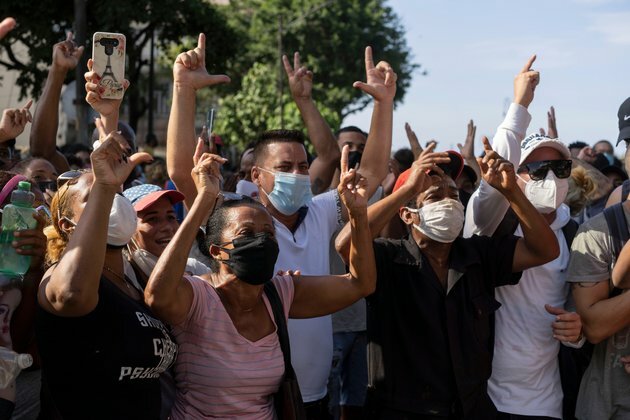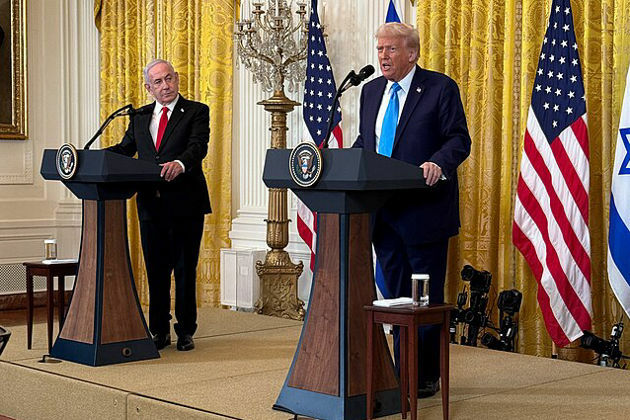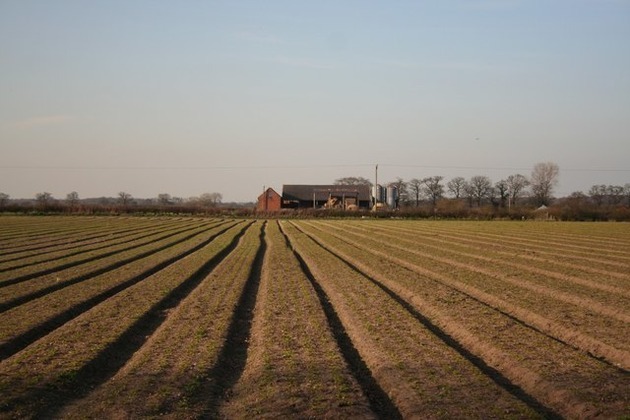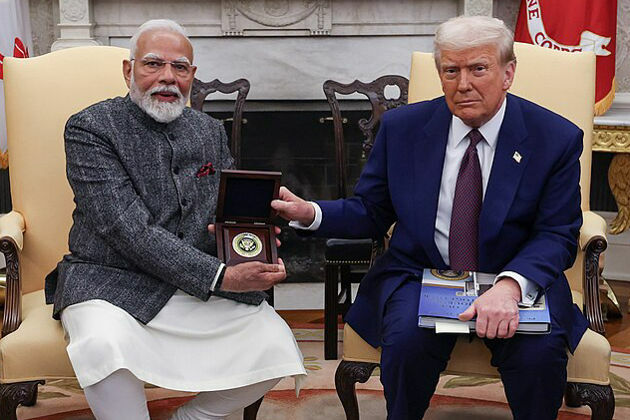Cuba's Internet Cutoff: The Go-to Tactic for Global Despots
Voice of America
13 Jul 2021, 05:35 GMT+10

Cubans facing the country's worst economic crisis in decades took to the streets over the weekend. In turn, authorities blocked social media sites in an apparent effort to stop the flow of information into, out of and within the beleaguered nation.
Restricting internet access has become a tried-and-true method of stifling dissent by authoritarian regimes around the world, alongside government-supported disinformation campaigns and propaganda. On the extreme side, regimes like China and North Korea exert tight control over what regular citizens can access online. Elsewhere, service blockages are more limited, often cutting off common social platforms around elections and times of mass protests.
Sites blocked
On Monday, Cuban authorities were blocking Facebook, WhatsApp, Instagram and Telegram, said Alp Toker, director of Netblocks, a London-based internet monitoring firm. "This does seem to be a response to social media-fueled protest," he said. Twitter did not appear to be blocked, though Toker noted Cuba could cut it off if it wanted to.
While Cuba's recent easing of access to the internet has increased social media activity, Toker said, the level of censorship has also risen. Not only does the cutoff block out external voices, he said, it also squelches "the internal voice of the population who have wanted to speak out."
Internet access in Cuba has been expensive and relatively rare until recently. The country was "basically offline" until 2008, then gradually over the past 12 to 15 years, it entered a digital revolution, said Ted Henken, a Latin America expert at Baruch College, City University of New York.
The biggest change, Henken noted, was in December 2018 when Cubans got access to mobile internet for the first time via data plans purchased from the state telecom monopoly. Since then, the percentage of Cubans with internet access has grown quickly to more than 50% today, Henken said.
Real-time access
The mobile revolution has given Cubans real-time, anywhere-you-are access to the internet and the ability to share information among themselves, he added. Since early 2019, this access has facilitated regular, if smaller, events and protests on the island, and in response, the government has periodically shut down access to social media, mostly to hide its repressive tactics from both citizens and foreigners, he said.
The Cuban government also restricts independent media in Cuba and "routinely blocks access within Cuba to many news websites and blogs," according to Human Rights Watch.
Cuba is going through its worst economic crisis in decades, along with a resurgence of coronavirus cases, as it suffers the consequences of U.S. sanctions imposed by the Trump administration.
The protests now, the largest in decades, are "absolutely and definitely fueled by increased access to internet and smartphones in Cuba," said Sebastian Arcos, associate director of the Cuban Research Institute at Florida International University.
"Yesterday evening we had people calling from Cuba to relatives here in Miami trying to figure out what was going on in the next province," Arcos said. But he noted that Cubans are also using a number of tricks to bypass government control.
Internet shutdowns becoming common
Government internet shutdowns after or ahead of protests have become commonplace, whether lasting for a few hours or stretching for months. In Ethiopia, there was a three-week shutdown in July 2020 after civil unrest. The internet blackout in the Tigray region has stretched on for months. In Belarus, the internet went down for more than two days after an August 2020 election seen as rigged sparked mass protests. Mobile internet service repeatedly went down during weekend protests for months afterward.
A decade ago during the Arab Spring, when social media was still in its early years and Egypt, Tunisia and other countries in the Middle East faced bloody uprisings that were broadcast on social media, headlines declared the movements "Twitter Revolutions," and experts debated about just how important a role social media played in the events.
Ten years later, there is no question that social media and private chat platforms have become an essential organizing tool. Restricting them, in turn, is a routine move to suppress dissent. Internet service was disrupted in Cali, Colombia, during May anti-government protests.
This year has also seen disruptions in Armenia, Uganda, Iran, Chad, Senegal and the Republic of Congo.
India shuts down internet
But authoritarian regimes aren't the only ones getting into the act. India routinely shuts down the internet during times of unrest. Toker of NetBlocks said the imposition of internet restrictions in Cuba follows an emerging global pattern and not always in the countries you most expect them, such as a recent Nigerian cutoff of Twitter. On the plus side, he said, the world is much more aware of these incidents because it's easier to monitor and report them remotely.
On Sunday, all of Cuba went offline for less than 30 minutes, after which there were several hours of intermittent but large outages, said Doug Madory of Kentik, a network management company. He said large internet outages were rare in Cuba until very recently.
"There was an outage in January just for mobile service following the '27N' protests," Madory said, referring to a movement of Cuban artists, journalists and other members of civil society who marched to the Ministry of Culture on November 27, 2020, demanding freedom and democracy.
Henken said he doesn't believe the government would shut off access for an extended period of time, even though that is its go-to tactic for dissidents and activists.
"The problem they have now is that it's not a handful of activists or artists or independent journalists - it's now a massive swath of the population all throughout the country," he said. "So the genie is out of the bottle. They're trying to put it back in."
 Share
Share
 Tweet
Tweet
 Share
Share
 Flip
Flip
 Email
Email
Watch latest videos
Subscribe and Follow
Get a daily dose of North Korea Times news through our daily email, its complimentary and keeps you fully up to date with world and business news as well.
News RELEASES
Publish news of your business, community or sports group, personnel appointments, major event and more by submitting a news release to North Korea Times.
More InformationInternational
SectionTragedy in Spain: Diogo Jota and his brother die in car accident
MADRID, Spain: Liverpool footballer Diogo Jota and his younger brother, André Silva, have died in a car accident in Spain. Spanish...
Early heatwave grips Europe, leaving 8 dead and nations on alert
LONDON, U.K.: An unrelenting heatwave sweeping across Europe has pushed early summer temperatures to historic highs, triggering deadly...
U.S. military, China, Russia in Space race
President Donald Trump's plans to build a space-based Golden Dome missile defense shield have drawn immediate criticism from China,...
Trump wins $16 million settlement from Paramount over CBS Harris edit
NEW YORK CITY, New York: Paramount has agreed to pay US$16 million to settle a lawsuit brought by U.S. President Donald Trump over...
British PM faces major party revolt over welfare reforms
LONDON, U.K.: British Prime Minister Keir Starmer won a vote in Parliament this week to move ahead with changes to the country's welfare...
White House meeting between Trump, Netanyahu on July 7
WASHINGTON, D.C.: President Donald Trump will meet Israeli Prime Minister Benjamin Netanyahu at the White House on Monday. President...
Business
SectionEngine defect prompts Nissan to recall over 443,000 vehicles
FRANKLIN, Tennessee: Hundreds of thousands of Nissan and Infiniti vehicles are being recalled across the United States due to a potential...
Microsoft trims jobs to manage soaring AI infrastructure costs
REDMOND, Washington: Microsoft is the latest tech giant to announce significant job cuts, as the financial strain of building next-generation...
Stocks worldwide struggle to make ground Friday with Wall Street closed
LONDON UK - U.S. stock markets were closed on Friday for Independence Day. Global Forex Markets Wrap Up Friday with Greeback Comeback...
Nvidia briefly tops Apple’s record in AI-fueled stock rally
SANTA CLARA, California: Nvidia came within a whisker of making financial history on July 3, briefly surpassing Apple's all-time market...
ICE raids leave crops rotting in California, farmers fear collapse
SACRAMENTO, California: California's multibillion-dollar farms are facing a growing crisis—not from drought or pests, but from a sudden...
Trump signals progress on India Trade, criticizes Japan stance
WASHINGTON, D.C.: President Donald Trump says the United States could soon reach a trade deal with India. He believes this deal would...













